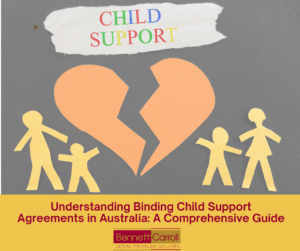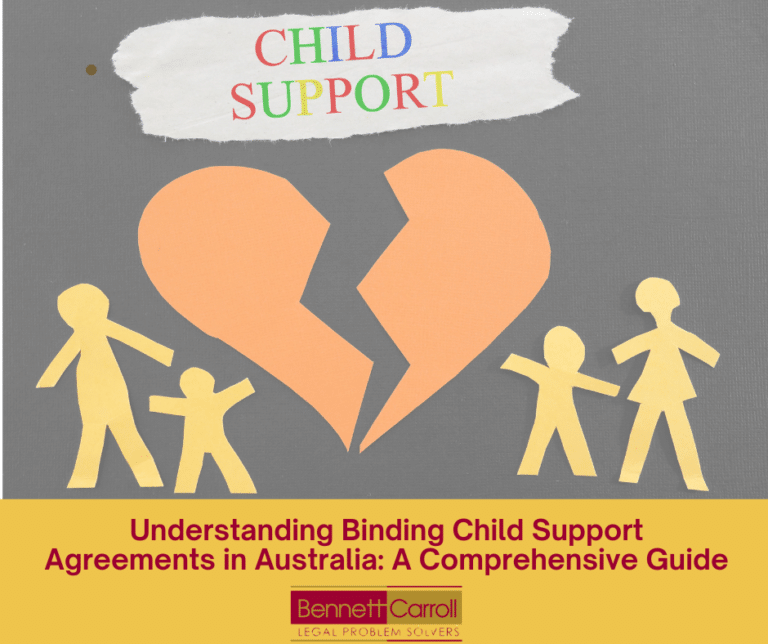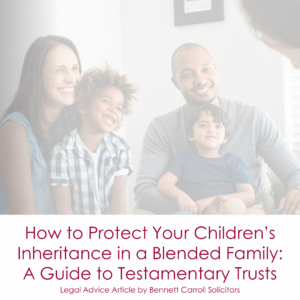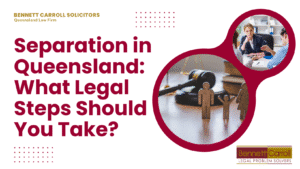A Binding Child Support Agreement (BCSA) is a legal agreement between parents or caregivers of a child or children in Australia that sets out the terms for the financial support of the child or children. It is a formal arrangement governed by the Child Support (Assessment) Act 1989 and allows parents to agree on child support payments without needing to rely on the government child support agency (the Department of Human Services or the Child Support Agency) to determine the amount.
Key features of a Binding Child Support Agreement include:
- Legally Binding: As the name suggests, a BCSA is a legally binding agreement between the parents. Once signed and accepted by both parties, it has the same legal effect as a court order.
- Flexibility: Unlike the standard child support assessment process, which calculates child support payments based on a formula taking into account factors such as income and the care arrangements for the child, a BCSA allows the parents to negotiate their own terms for child support payments. This can provide more flexibility to tailor the agreement to the specific needs and circumstances of the family.
- Certainty: A BCSA provides certainty for both parents regarding their child support obligations. Once the agreement is in place, the agreed-upon terms for child support payments are fixed and cannot be changed unless both parties agree or under limited circumstances allowed by law.
- Enforceability: A BCSA is enforceable through the courts, which means that if one party fails to comply with the terms of the agreement, the other party can take legal action to enforce it.
- Registration: To be legally effective, a BCSA must be in writing and signed by both parties. It must also be registered with the Child Support Agency for it to take effect.
Who can apply for a BCSA?
These parties include:
- Parents: The most common scenario involves the biological or adoptive parents of a child entering into a BCSA. This includes situations where the parents are married, in a de facto relationship, separated, divorced, or were never in a relationship.
- Legal Guardians: In some cases, legal guardians of a child may also be eligible to enter into a BCSA. This could include situations where a person has been appointed as a legal guardian through a court order or other legal means.
- Non-Parent Caregivers: In certain circumstances, non-parent caregivers who have assumed responsibility for the care of a child may also be eligible to enter into a BCSA. This could include situations where a grandparent, relative, or other caregiver has primary or shared care of the child and wishes to formalise child support arrangements with the child’s parents.
It’s important to note that entering into a Binding Child Support Agreement is a significant decision and it’s advisable for both parties to seek independent legal advice before doing so. Once in place, a BCSA can only be varied or set aside in limited circumstances, so it’s important for both parties to fully understand the implications of the agreement before signing.
Contact Bennett Carroll Solicitors today to speak with one of our experienced family lawyers. Our team is here to provide you with comprehensive guidance and support, ensuring that your child support arrangements are fair, flexible, and legally sound. Don’t navigate this alone—reach out to us now and secure peace of mind for you and your children.
Call us on or email and safeguard your interests every step of the way- We are your legal problem solvers.








